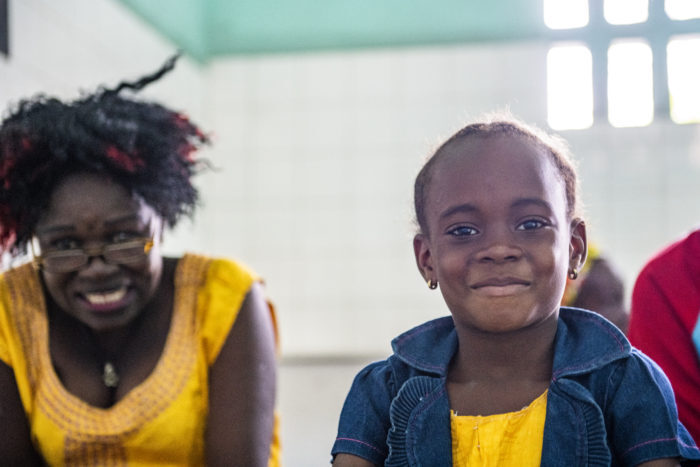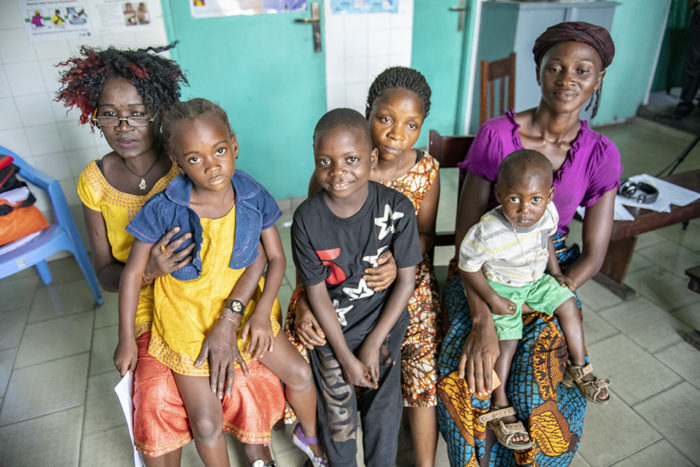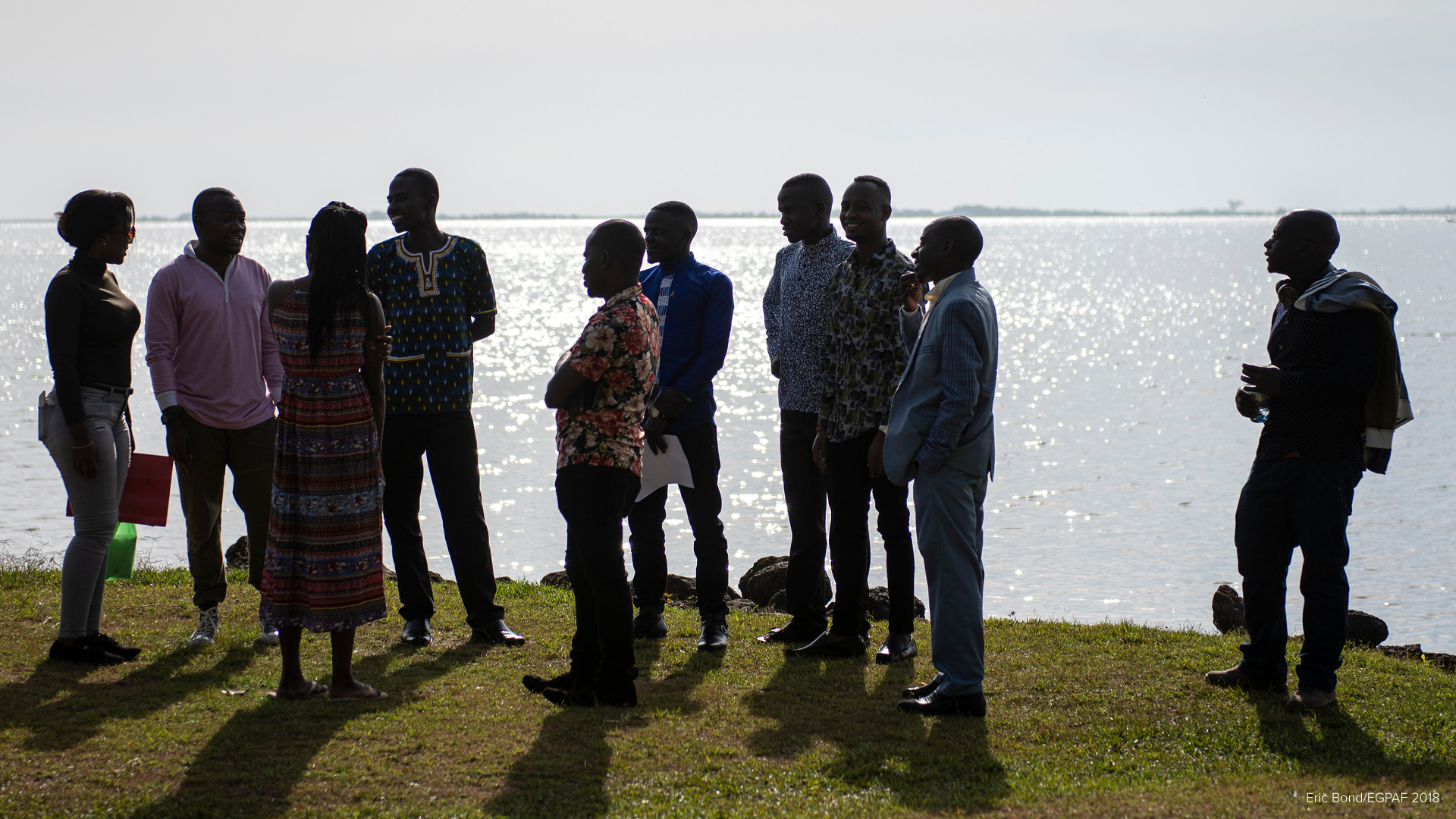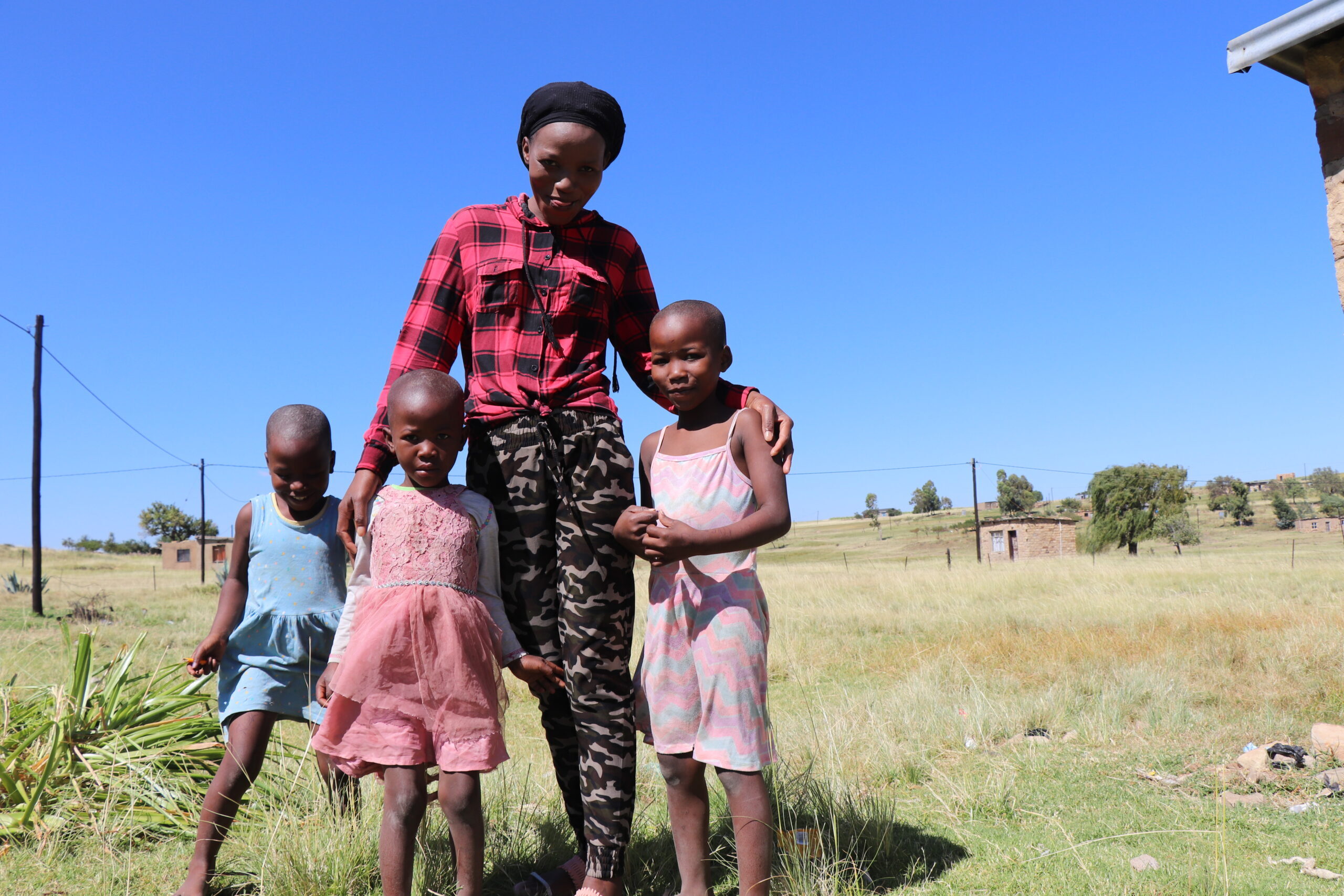Yangambi is an active 6-year-old living in Kinshasa, Democratic Republic of Congo (DRC). Not long ago, she had become listless and lost interest in playing. She stopped eating and quickly lost weight, which worried her grandmother, Gabrielle Bunzeki, who is Yangambi’s caretaker. Gabrielle began to worry that her granddaughter had become re-infected with tuberculosis (TB)—for which she had been diagnosed and treated when she was a toddler.
“Yangambi developed a high fever, started breathing heavily, and broke out in rashes,” says Gabrielle. “I suspected that she might be ill once more with TB, so I brought her again to St. Pierre Health Center. For a second time, she tested positive for TB and again took treatment on the same day of testing,” says Gabrielle.
For her previous treatment, Yangambi had to swallow bitter pills, which she hated. The medicine was effective, but it was not as fast-acting as a new formulation, available since the beginning of 2018.
A key difference between CaP-TB and other TB programs is the engagement of the community
“To improve adherence to treatment, we use dispersible tablets in fruit flavors” says Aimé Loando, M.D. “The tablets are dissolved in the water and given to children to drink.” Dr. Loando is the DRC lead of the Catalyzing Pediatric TB Innovations (CaP-TB) program, funded by Unitaid and implemented by the Elizabeth Glaser Pediatric AIDS Foundation (EGPAF) in DRC.
“Because of sweet flavor, the youngest TB patients take the medicine easily and can feel well quickly,” says Gabrielle. “My granddaughter took the new treatment at 8 a.m., and she was playing at 5 p.m. With the old treatment, we waited for more than 24 hours to see the child start playing.”
“Now Yangambi is eating food and drinking juice around the clock,” says Gabrielle.

“According to the national TB guidelines, which CaP-TB supports and strengthens, when Yangambi was diagnosed with TB, she was also tested for HIV,” says Nurse Marceline Nakweti, a TB Focal Person at St. Pierre Health Clinic. “TB is the most common coinfection with HIV. By integrating HIV testing with TB diagnosis, we hope to discover persons living with HIV so that they can be enrolled in antiretroviral treatment.”
All were pleased to see that Yangambi tested negative for HIV.
“A key difference between CaP-TB and other TB programs is the engagement of the community,” says Dr. Loando. At St. Pierre, the Club des Amis Damien (Friends of Damien Club) has established a committee of volunteers that works closely with the facility and with EGPAF’s CaP-TB project.
“Members of this club are all former and healed TB patients,” says Godet Ilumbe, one of the volunteers. “Every member is based in the health facility they frequented to receive TB diagnosis and treatment.”
“As TB volunteers, we conduct visits at the homes of known cases,” adds Bibi Marie-Jeanne, another club member. This is known as index tracing.
“For Yangambi’s case, we visited the home of her caretaker and completed TB screenings on the spot of all of her contacts older than age 5. Because TB symptoms in children are not always easily recognized, we referred the children younger than age 5 to St Pierre for diagnosis,” says Ilumbe.

TB treatment at this clinic is free, a vital detail in DRC, which ranks as one of the ten poorest countries.
“In low-income countries like DRC, if the treatment is not free, TB will spread more freely,” says Dr. Loando. “It is important that governments invest in child-friendly diagnostics so that health workers can quickly diagnose TB in children and provide child-friendly medicines. This way, treatment can reach and cure even the youngest TB patients.”
“It is painful, very painful to hear that your son or your daughter has got a TB infection—because you don’t know why the child has TB,” says Gabrielle. “Of course, I fear that she might die or be disabled by the disease.”
“I just want Yangambi to recover quickly and forever,” says Gabrielle.
It is important that governments invest in child-friendly diagnostics so that health workers can quickly diagnose TB in children and provide child-friendly medicines.






